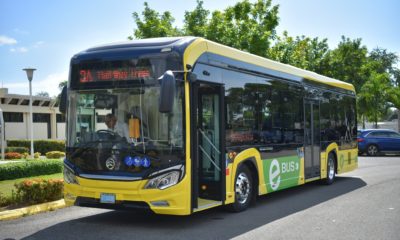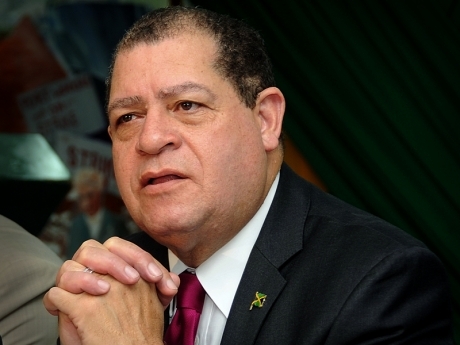Transportation
Jamaica’s Transport Authority (TA) Revising Requirements For Licensing Of Public Passenger Vehicles

Businessuite News24
Businessuite Special Report P4 | Homegrown Disruption: InterMetroONE & Walkbout.com Position Jamaica’s Answer to Uber–Airbnb
Now is the time for SMEs, associations, and government to align—ensuring that if Uber and Airbnb ever arrive together, Jamaica’s own ecosystem remains vibrant and in control.
Businessuite News24
Businessuite Special Report P3 | Uber x Airbnb: A Strategic Alliance That Could Redefine Jamaica’s Travel Industry – But At What Cost?
The future of Jamaican tourism lies in its ability to integrate into global digital ecosystems without sacrificing local livelihoods. The time for public–private dialogue is now.
Businessuite News24
Businessuite Special Report P2 | Disruption in Jamaica: Uber & Airbnb Business Models
Logistics & Transportation
Unilever Caribbean’s Strategic Shift: Embracing Outsourced Logistics for Enhanced Efficiency
UCL’s strategic move reflects a broader trend among Caribbean manufacturers and distributors. Companies like Nestlé Jamaica have similarly outsourced their logistics operations to focus on core business areas. This regional shift is influenced by the desire to improve efficiency, reduce costs, and leverage the expertise of specialized logistics providers
Businessuite News24
$420 Million Secured for Second CNG Plant at JUTC Spanish Town Depot
-

 Businessuite Women2 weeks ago
Businessuite Women2 weeks agoData Mavericks of the Caribbean: Raquel Seville & Dataffluent’s Visionary Rise
-

 Businessuite News244 weeks ago
Businessuite News244 weeks agoIndia’s 10-Minute Delivery Boom: A Blueprint for Disruption—and a Wake-Up Call for Caribbean Courier Companies
-

 Businessuite News24 International4 weeks ago
Businessuite News24 International4 weeks agoIndia’s 10-Minute Delivery Boom: Reshaping Retail, Logistics, and Urban Spaces
-

 Businessuite News243 weeks ago
Businessuite News243 weeks agoBusinessuite Special Report P4 | Homegrown Disruption: InterMetroONE & Walkbout.com Position Jamaica’s Answer to Uber–Airbnb
-

 Corporate Feature4 weeks ago
Corporate Feature4 weeks agoNot Just Vanity Metrics: A Digital Leader Focused on What Matters
-

 Businessuite News245 days ago
Businessuite News245 days agoJamaica Records US$2.4B in Earnings From 2.3 Million Visitor Arrivals Since Start of 2025
-

 Business Insights2 weeks ago
Business Insights2 weeks agoBusinessuite Cover Story: Too Much Power? Governance Risks Rise as Tyrone Wilson Consolidates Leadership at Kintyre and Visual Vibe
-

 Businessuite Markets3 weeks ago
Businessuite Markets3 weeks agoEduFocal Faces Equity Deficit of $135M Amid $314M in Accumulated Losses














 Unilever Caribbean Ltd (UCL) has recently approved a significant transformation in its distribution strategy by adopting a new route-to-market structure.
Unilever Caribbean Ltd (UCL) has recently approved a significant transformation in its distribution strategy by adopting a new route-to-market structure. UCL’s strategic move reflects a broader trend among Caribbean manufacturers and distributors.
UCL’s strategic move reflects a broader trend among Caribbean manufacturers and distributors.






